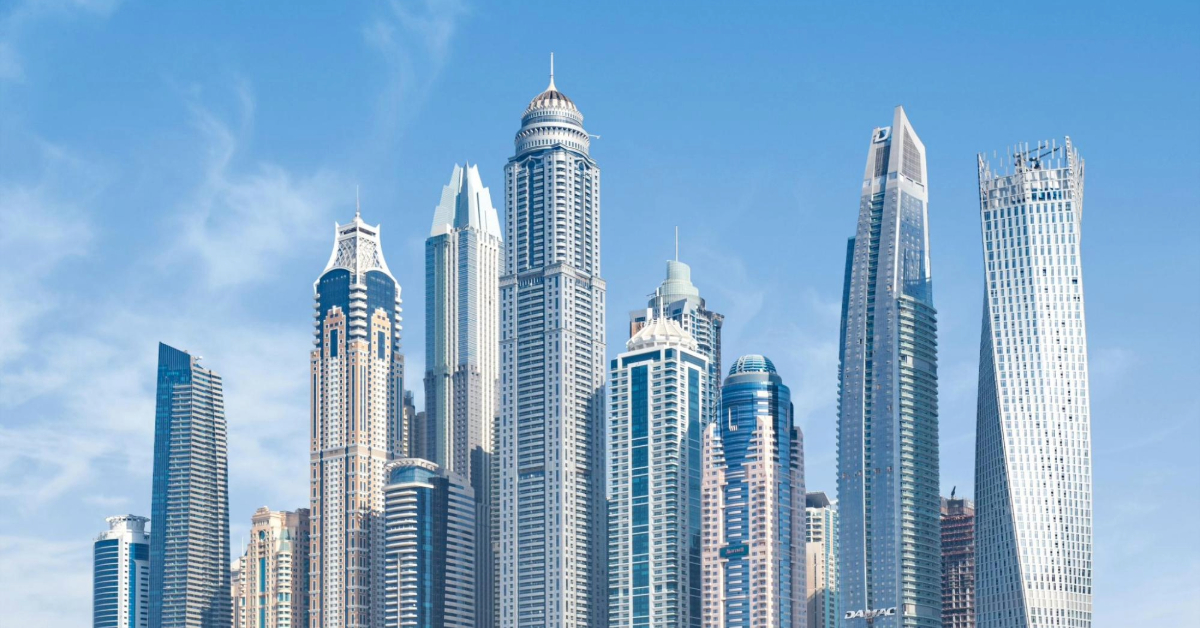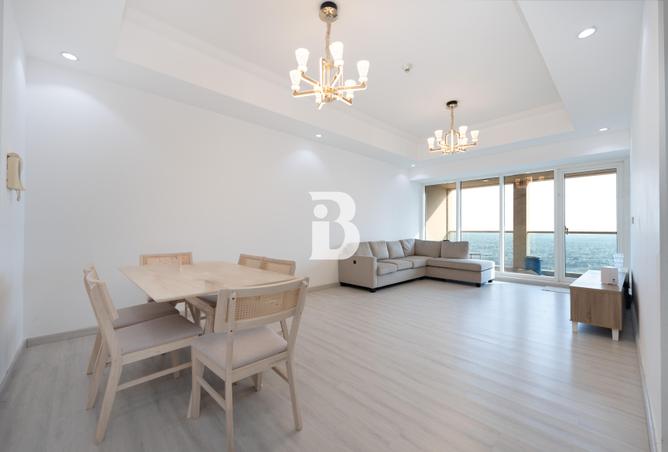If you are in a position to choose between living in Riyadh or Dubai, it’s a hard choice, but assessing the cost of living in both can make it easier. Both Riyadh and Dubai offer a good standard of living, modern infrastructure and stimulating career opportunities. However, noticeable differences emerge when comparing the cost of living in Riyadh vs Dubai.
Let’s explore the differences category by category to better compare the cost of living in Riyadh vs Dubai.
- Housing costs
- Food and groceries
- Transportation
- Utilities and internet
- Clothing and personal care
- Entertainment and leisure
- Childcare and education
- Salaries and purchasing power
- Lifestyle
- Key takeaways on the cost of living in Riyadh vs Dubai
- FAQs

Living in Riyadh vs Dubai
Riyadh is generally more cost-effective, thanks to its affordable day-to-day expenses. Living in Riyadh is approximately 29% cheaper than in Dubai, with the most significant variation seen in housing costs. Transport and food are also less expensive in Riyadh.
On the other hand, Dubai is a global hub, positioned at the centre of international business, tourism, and luxury. Its property market and entertainment sector reflect this status, and its renowned dining scene often commands premium prices compared to other cities in the region.
1. Housing costs
Accommodation is one area where Riyadh clearly has an advantage over Dubai. Rent in Dubai is significantly higher, especially in central districts.
In Riyadh, your housing budget stretches further, allowing you to afford larger living spaces, an extra bedroom, or even a villa or townhouse for the same price as a smaller property in Dubai.
By contrast, Dubai offers properties with premium, international-standard amenities such as gyms, swimming pools, and concierge services. However, these added luxuries come at a higher cost.
For example, when looking for apartments to rent in Dubai and checking the prices of one-bedroom you’ll find that they cost around 8,675 AED per month, compared to just 4,113 AED in Riyadh.
Moving away from prime locations offers more affordable options. A one-bedroom apartment outside the city centre costs about 5,632 AED in Dubai and 3,109 AED in Riyadh.
The gap becomes even wider for families, as a three-bedroom apartment in Dubai typically costs 17,279 AED per month, whereas in Riyadh, it is roughly 7,477 AED.
Suburban family homes follow the same trend, averaging 11,445 AED in Dubai and only 4,113 AED in Riyadh. In fact, a family renting a large apartment in Riyadh may spend less than an individual renting a one-bedroom flat in Dubai.
Explore the Available Properties for rent in Dubai
-

Apartment
Listed 2 weeks ago
220,000 AED/year
ARMANI RESIDENCES | FURNISHED 1BR | BURJ KHALIFA
Armani Residence, Burj Khalifa Area, Downtown Dubai, Dubai
1
2
1,011 sqft
-

Apartment
Listed 5 days ago
154,999 AED/year
2 BR plus Maids Room | Upgraded Furnished
Churchill Residency Tower, Churchill Towers, Business Bay, Dubai
2
3
1,472 sqft
-

Apartment
Listed 6 days ago
120,000 AED/year
1BR | FULLY FUNRISHED | SPACIOUS | READY TO MOVE
Tower D, DAMAC Towers by Paramount, Business Bay, Dubai
1
2
965 sqft
-

Apartment
Listed 3 days ago
183,000 AED/year
Pay in 4 Cheques | Two BR+Store | New Modern Home
Al Badia Living, Dubai Festival City, Dubai
2
3
1,386 sqft
-

Villa
Listed 3 days ago
330,000 AED/year
Community Expert | Brand New Vacant | Key In Hand
June, Arabian Ranches 3, Dubai
4
7
4,197 sqft
-

Villa
Listed 3 days ago
800,000 AED/year
Exclusive Villa | Huge Garden | Covered Parking
Nad Al Sheba 4, Nad Al Sheba, Dubai
5
7
17,222 sqft
-

Villa
Listed 3 days ago
699,999 AED/year
Fabulous Villa | Garden Area | Swimming Pool
Nad Al Sheba Villas, Nad Al Sheba 3, Nad Al Sheba, Dubai
5
7
9,817 sqft
-

Apartment
Listed 4 days ago
175,000 AED/year
Comfort and Style | Perfect Place to Live | Vacant
Al Badia Living, Dubai Festival City, Dubai
2
3
1,386 sqft
-

Villa
Listed 4 days ago
230,000 AED/year
Modern Home | Single Row Unit | Private Garden
Al Badia Villas, Dubai Festival City, Dubai
3
4
2,935 sqft
-

Villa
Listed 4 days ago
347,000 AED/year
Ideal Choice for Family | Brand New | Badia Villa
Al Badia Villas, Dubai Festival City, Dubai
4
6
4,284 sqft
2. Food and groceries
Food and groceries are everyday expenses, and Riyadh is also more affordable. On average, restaurant costs in Riyadh are about 38% lower than in Dubai.
A simple lunch costs around 7.96 AED in Riyadh, compared to 9.98 AED in Dubai. A three-course meal for two is roughly 54.1 AED in Riyadh, while the same experience in Dubai will set you back about 70.6 AED, and the savings add up quickly.
Groceries such as rice, bread, and vegetables are generally cheaper in Riyadh. Prices in Dubai tend to be higher due to the city’s greater dependence on imported goods. Everyday staples like milk are slightly more affordable in Riyadh, with grocery price indices showing 2% advantage overall.
The most significant gap is seen in dining out, where Dubai’s cosmopolitan character and abundance of premium restaurants drive costs significantly higher.

3. Transportation
Transportation costs vary depending on how you choose to get around. Public transport in Riyadh is considerably cheaper; a monthly pass costs about 137.10 AED, compared with 320 AED in Dubai.
A one-way ticket in Riyadh costs around 3.92 AED, while a similar journey in Dubai is about 6 AED. These savings can be significant for expatriates who rely on buses or metro lines.
Taxi
Taxi fares show a mixed picture. In Dubai, the starting fare is 12 AED, slightly lower than 12.73 AED in Riyadh. However, the per-kilometre rate is higher in Riyadh at 6.85 AED, compared to 2.50 AED in Dubai.
Due to low fuel prices, driving your own car is relatively affordable in both cities. Petrol costs approximately 2.23 AED per litre in Riyadh, versus 2.74 AED in Dubai. Over time, this makes daily driving a little more expensive in Dubai.
Additionally, hidden driving costs in Dubai, such as parking fees and road tolls, can add up quickly, whereas parking in Riyadh remains inexpensive and widely available.
4. Utilities and internet
Utility and connectivity costs are generally higher in Dubai. Monthly basic utilities for an 85 m² apartment average around 763.91 AED, whereas a similar apartment in Riyadh costs roughly 394.19 AED. This means expenses in Dubai are nearly double, mainly due to the city’s advanced infrastructure and energy demand.
A similar pattern appears in communication costs. Mobile phone packages average 228.18 AED in Dubai, compared to 129.33 AED in Riyadh. Internet services are also pricier; a high-speed connection (60 Mbps or higher) costs around 359.20 AED in Dubai, while in Riyadh, the same service is about 273.60 AED.
As a result, even smaller apartment rentals Dubai often come with higher utility bills compared to larger homes in Riyadh. This difference is mainly due to higher tariffs and the widespread use of centralized cooling systems in Dubai.
5. Clothing and personal care
Dubai generally levies higher prices on clothing and personal items, particularly for branded products. Branded jeans cost around 298.67 AED in Dubai, compared to 216.73 AED in Riyadh. Similarly, coloured business shoes average 458.46 AED in Dubai, while the same pair would cost approximately 360.86 AED in Riyadh. However, it is still possible to do cheap shopping in Dubai, as local markets, outlet stores, and seasonal sales often offer excellent deals on fashion and accessories.
Personal care services, such as haircuts and men’s grooming, are priced fairly similarly in both cities. However, Dubai’s extensive retail scene, featuring luxury malls and international boutiques, often encourages more spending. In contrast, Riyadh offers fewer high-end outlets but provides excellent value for money, catering to everyday needs at more affordable prices.
6. Entertainment and leisure
Dubai positions itself as the Middle East’s entertainment capital, which is clearly reflected in the variety and pricing of its leisure options.
Dubai Cinema tickets show a slight difference, around 57.50 AED compared to 56.31 AED in Riyadh. Interestingly, gym memberships tend to be more expensive in Riyadh, averaging 383.55 AED per month, while in Dubai, they cost about 311.81 AED.
When it comes to recreation, Dubai truly stands out. The city offers unparalleled activities, from world-class concerts and exhibitions to beach clubs and theme parks. These attractions make Dubai a global entertainment hub, but they naturally come at a premium.
Meanwhile, Riyadh’s entertainment sector is still developing. The city is witnessing growing investment in cinemas, cultural spaces, and social venues, though the leisure landscape remains more limited. That said, a casual outing in Riyadh is far more affordable than a similar experience in Dubai.

7. Childcare and education
The cost of schooling is always a significant consideration for families. The educational scene in Dubai is surely outstanding, offering endless options from American and British to Montessori and Indian systems.
Private preschools in Dubai cost around 3,022.92 AED per month, compared to 1,696.19 AED in Riyadh. The difference widens further at the international school level, where annual fees average 54,746.58 AED in Dubai and 36,032.88 AED in Riyadh.
Both cities offer a strong selection of international schools and universities. However, Dubai’s institutions are often affiliated with renowned global education institutions like the University of Dubai. Riyadh also provides excellent international schooling options, generally at more competitive prices, making it a practical choice for families seeking quality education without excessive costs.
8. Salaries and purchasing power
The salaries in Dubai are typically higher. This largely compensates for the costlier living environment there.
The net average salary in Dubai stands at 14,350 AED, whereas in Riyadh, it averages about 9,185 AED. However, considering the rent, you will have more disposable income in Riyadh compared to families or working professionals not earning at Dubai’s top pay scale.
9. Lifestyle
Riyadh offers a slower and quieter pace of life, shaped by conservative traditions and a strong emphasis on family values. The city moves at a gentler rhythm than Dubai and remains deeply rooted in local culture and customs.
Dubai, on the other hand, thrives on diversity. With its internationally mixed population and dynamic social scene, it stands among the most cosmopolitan cities in the world, offering a vibrant lifestyle that blends cultures from across the globe.
Key takeaways on the cost of living in Riyadh vs Dubai
If you wish to maximise your savings without compromising quality of life, Riyadh is a strong choice. Housing is among the most significant deciding factors, with average rental prices in Riyadh being less than half of those in Dubai. Utilities, transport, and education are also more affordable, making Riyadh ideal for those who keep monthly expenses low while maintaining a comfortable lifestyle.
Dubai, however, offers advantages of its own. The city is known for its higher salaries, global connectivity, and cosmopolitan lifestyle. Areas such as Downtown Dubai provide a dynamic mix of luxury living, fine dining, and modern entertainment. Residents enjoy a wide range of entertainment and leisure opportunities, supported by world-class infrastructure and amenities.
The choice between Riyadh and Dubai depends on your priorities and lifestyle expectations. Riyadh appeals to those seeking value and a family-oriented environment, while Dubai attracts individuals who prioritise career growth, luxury, and an internationally connected way of life.
FAQs
Rental costs and housing are the two major cost drivers.
Yes, Dubai disburses higher compensations to offset its higher costs.
You can find luxury housing options in Riyadh. While they may not have the most high-end amenities, they are way more affordable than in Dubai.
Food is more expensive in Dubai, while Entertainment is cheaper in Riyadh.




